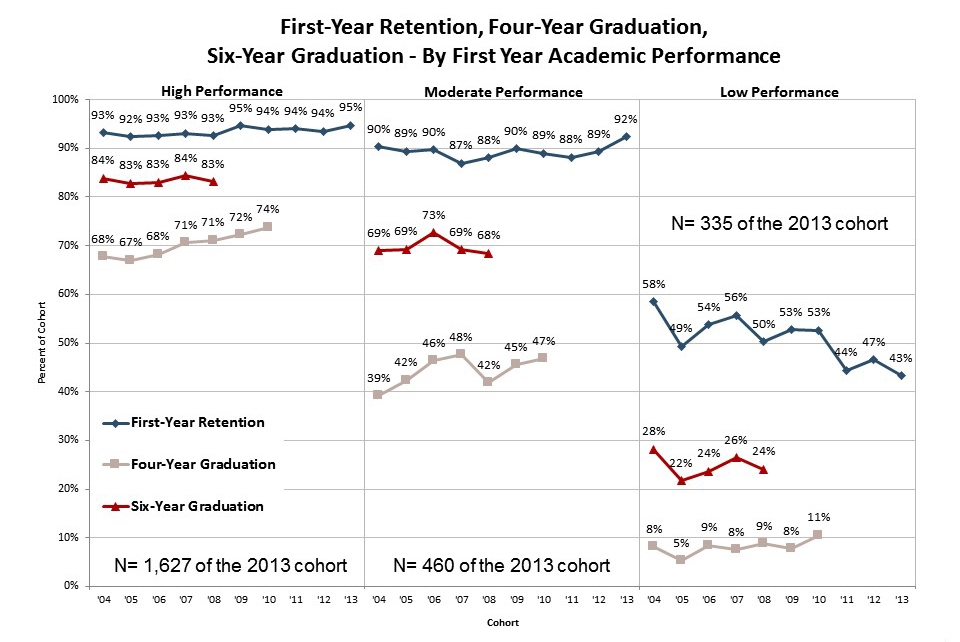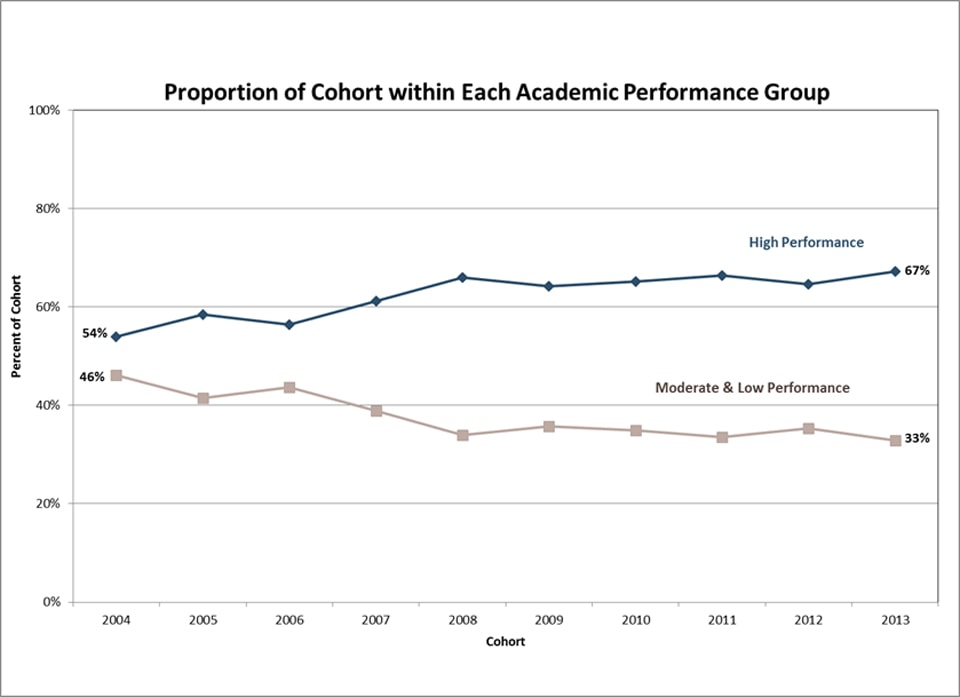DePaul’s in-depth longitudinal research of student retention and graduation trends has revealed—and continues to confirm—how critical first-year academic performance is to a student staying at DePaul and graduating on time.
Looking at four-year and six-year graduation rates from the most recent retention analysis, the data reveal that students who earn a 2.5 or higher GPA and 48 or more credit hours (considered “high performing”) are far more likely to stay at DePaul and graduate in four or six years than students who did not reach these performance measures.
In terms of four-year graduation rates, 74 percent of high-performing freshmen graduated in four years. This compares with only a 47 percent four-year graduation rate for freshmen who met only one of the GPA or credit hour milestones, and an 11 percent rate for freshmen who met neither.
The differences for six-year rates between first-year academic performance groups are just as stark. Freshmen with high performance had a six-year graduation rate of 83 percent, compared with a rate of 68 percent for freshmen who met one of the two measures, and a 24 percent six-year graduation rate for freshmen who met neither of these measures.
 Chart illustrating first-year retention, four-year graduation and six-year graduation all by first year academic performance.
Chart illustrating first-year retention, four-year graduation and six-year graduation all by first year academic performance.
One of DePaul’s key strategies for improving first-year performance is early intervention. Early notification by faculty of students' difficulty in first-year classes, preferably by the fourth week of the quarter, is critical to directing students to helpful academic resources as well as helping students understand the importance and long-term consequences of academic performance in the first year.
Faculty are encouraged to give a
low-stakes assignment in the first few weeks of class to provide students with an indication of their performance in the course and give students an opportunity to improve their performance prior to receiving a final grade. The outcome from these assignments can be used when instructors complete the BlueStar Progress Survey mid-way through the quarter to raise flags and/or "kudos" for any student who may need extra attention. Launched in 2014,
BlueStar in Campus Connect enables faculty to notify students and others in the student’s network (such as their advisor) if there is a concern about a student’s academic performance.
DePaul’s efforts to improve first-year performance have paid dividends. The percentage of the freshman class who are considered high performing is 67 percent, an increase of 13 percentage points over the last 10 cohorts.
 Chart illustrating the proportion of cohort within each academic performance group.
DePaul’s Executive Retention Group (XRG) oversees the university’s retention strategy. Data and other information developed for XRG are available on the Student Retention at DePaul
Chart illustrating the proportion of cohort within each academic performance group.
DePaul’s Executive Retention Group (XRG) oversees the university’s retention strategy. Data and other information developed for XRG are available on the Student Retention at DePaul website
. For additional questions about DePaul’s retention and graduation rates, contact Liz Holder.